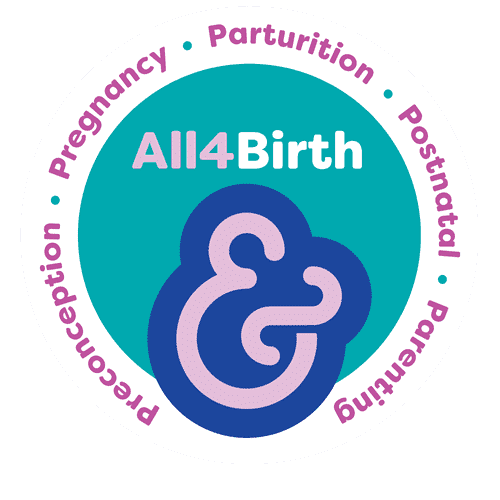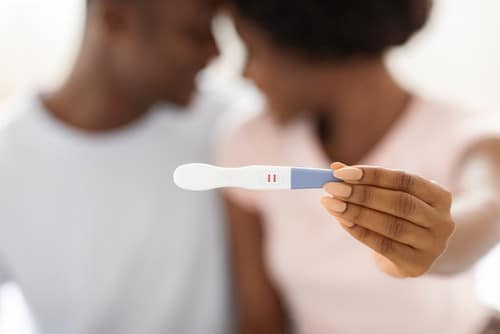Factsheet – Nutrition in pregnancy
Pippa Morrish
Midwifery Sister
@midwife_pip
Summary
Pregnancy is a powerful time to nourish yourself and your baby towards a healthier future. It is an empowering change that you can make yourself to directly improve the health of your family for the present and future.
What we know
Healthy eating habits have arguably never been more important than during pregnancy. There are direct links between inadequate nutrition and increased pregnancy complications, such as preterm birth and low birth weight babies.9 The maternal diet not only has to provide sufficient energy and nutrients to meet her usual requirements but also the needs of her growing baby.
The first 1,000 days of life- that is, the nine months of pregnancy and the first two years of the baby’s life is a critical window of opportunity for getting sufficient nutrition.6, 8 How well or how poorly mothers and children are nourished during this period has a profound impact on a child’s ability to grow, learn and thrive. It is a period during which mothers can make the most important contribution to their child’s healthy future and nutrition in particular is fundamental to this. Poor nutrition can set the stage for obesity, diabetes and chronic diseases for the child’s future life.8
The power of nutrition in pregnancy could also extend even further. When a baby girl is born, she already has all of her eggs for life. This means that when your grandmother was pregnant with your mother you were already a tiny egg in your mother’s womb.1 Therefore, when your grandmother was pregnant, she had an influence on the health of you. This highlights the power of women and how the optimisation of your health can have such positive potentials for future generations.
What we don’t know
There is emerging evidence linking specific micronutrients to improve health outcomes, although it is not wholly conclusive yet it’s definitely very interesting.
Omega 3 fatty acids- Studies linking omega 3 intake in pregnancy may lead to improved IQ and cognition of children.2
Healthy gut microbiome in pregnancy can lead to a reduction in asthma, eczema and allergies in children.3
Mothers and families: how to use the evidence
Our diets are made up of 3 macronutrients- carbohydrates, protein and fat. We then have multiple vitamins and minerals that are essential to health and wellbeing.
Incorporating these important nutrients should not be isolated to pregnancy and should form your diet in all periods of your life but the impact of a healthy diet in pregnancy is when it is often most powerful.
Carbohydrates should be your body’s main source of energy. Carbohydrates are broken down into glucose (sugar) and absorbed into your blood so the glucose can enter your cells and be used by your body for energy.4
Protein is composed of amino acids which are often referred to as ‘the building blocks of life’. This is because they are found in every cell of the body and are responsible for repair and growth of cells. Protein requirements increase in pregnancy to 1g/kg of body weight.4
Fats, specifically the ‘good’ or un-saturated versions are essential to health and the absorption of certain vitamins such as vitamin A, D and E. some energy but also growth and repair of tissues.4
Each meal should contain foods from each of these groups to make a balanced and varied diet. Using complex carbohydrates over refined, white versions gives you extra fibre and helps to maintain your blood sugars. For example, brown rice and pasta, wholemeal bread, oats and leaving skins on potatoes. Aim to limit your saturated fat intake from foods such as butter, cakes and chocolate and increase your unsaturated fats from sources including nuts, seeds, fish, avocados and olive oil.
If you are eating a balanced, varied diet encompassing each of the 3 macronutrients then you should be getting the necessary number of micronutrients in too.
Midwives and birth workers: how to use the evidence
Ensuring women understand the importance of nutrition in pregnancy and view it as a way of adding to their lifestyle and not a form of restriction.
A key area in which health professionals can contribute is the examination of iron during pregnancy as 1/3 of women of childbearing age have low iron stores.7 Iron is important in making red blood cells which transport oxygen around the body as well as other body functions such as gastrointestinal and immune systems. Deficiency in iron may lead to anaemia which may make you feel very tired and lethargic, cold, short of breath and generally weak. Pregnant women with low iron may also be more prone to infection because it supports the immune system and it is also associated with low birth weight infants and preterm birth.5
Iron requirements increase in pregnancy (27mg/day) – because red blood cell production increases dramatically to provide your baby with the oxygen and nutrients to grow.5,7
To aid your body’s ability to absorb iron in food eat it with Vitamin C rich foods such as fruits and veggies.
Links to other resources
 Social media
Social media
Midwife Pip @midwife_pip
Rhiannon Lambert, Nutritionist @rhitrition
Dr Hazel Wallace, GP and Nutritionist @thefoodmedic
 Guidelines
Guidelines
RCOG (2015) Advice on Nutrition in Pregnancy. Available from: https://www.rcog.org.uk/en/news/rcog-statement-advice-on-nutrition-in-pregnancy/
 Books
Books
Feed Yourself, Feed Your Family: Good Nutrition and Healthy Cooking for New Mums and Growing Families – Le Leche League International http://www.pinterandmartin.com
References
1. Aisling, A., Geraghty, K. and Gibney, E. (2015) Nutrition During Pregnancy Impacts Offspring’s Epigenetic Status—Evidence from Human and Animal Studies. Nutrition and Metabolic Insights. 8 (1), pp. 41- 47.
2. Coletta, J., Bell, S. Roman, A. (2010) Omega-3 Fatty Acids and Pregnancy. Reviews in Obstetrics and Gynaecology. 3 (4), pp. 163- 171.
3. Valdes, A. (2018) Role of the gut microbiota in nutrition and health. BMJ. 316 (1) pp. 36-44.
4. RCOG (2015) Advice on Nutrition in Pregnancy. Available from: https://www.rcog.org.uk/en/news/rcog-statement-advice-on-nutrition-in-pregnancy/
5. RCOG (2014) Healthy Eating and Vitamin Supplements in Pregnancy. Available from: https://www.rcog.org.uk/globalassets/documents/patients/patient-information-leaflets/pregnancy/pi-healthy-eating-and-vitamin-supplements-in-pregnancy.pdf
6. Thousand Days (2020) Why 1000 days? Available from: https://thousanddays.org/why-1000-days/
7. WHO (2018) Weekly iron and folic acid supplementation as an anaemia-prevention strategy in women and adolescent girls. Available from: https://www.who.int/nutrition/publications/micronutrients/WIFS-anaemia-prevention-women-adolescent-girls/en/
8. WHO (2013) Essential Nutrition Actions. Available from: https://www.who.int/nutrition/publications/infantfeeding/essential_nutrition_actions/en/
9. WHO (2019) Nutrition Counselling During Pregnancy. Available from: https://www.who.int/elena/titles/nutrition_counselling_pregnancy/en/










